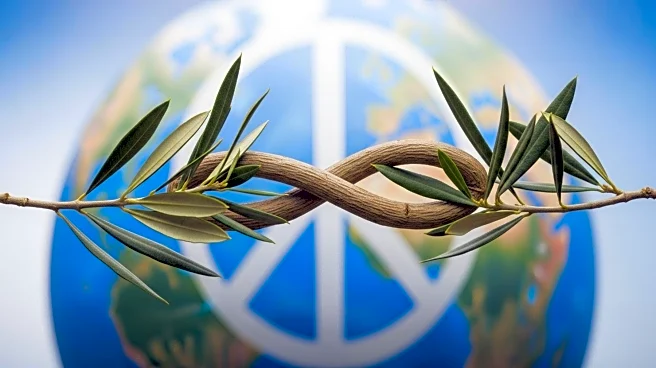What's Happening?
NPR's Michel Martin conducted an interview with Oliver McTernan, a veteran conflict mediator, to discuss President Trump's 20-point plan for Gaza and the ongoing peace talks. The plan, which aims to address the longstanding conflict in the region, has been a focal point of international diplomacy. McTernan provided insights into the potential effectiveness of the plan and the challenges it faces in implementation. The discussion highlighted the complexities of the peace process and the various stakeholders involved, including the Israeli and Palestinian authorities, as well as international actors.
Why It's Important?
The analysis of President Trump's plan is significant as it addresses one of the most enduring conflicts in the Middle East. The outcome of these peace talks could have far-reaching implications for regional stability and U.S. foreign policy. Successful implementation of the plan could lead to a reduction in hostilities and pave the way for economic and social development in Gaza. However, the plan's success depends on the cooperation of multiple parties, each with their own interests and agendas. The U.S. plays a crucial role as a mediator, and its approach to the peace talks could influence its diplomatic relations in the region.
What's Next?
The next steps involve continued negotiations among the involved parties to refine and implement the 20-point plan. Stakeholders will need to address key issues such as security arrangements, economic support, and political recognition. The international community, including the United Nations and neighboring countries, may also play a role in facilitating dialogue and providing support for the peace process. Observers will be watching closely to see how the plan evolves and whether it can achieve tangible results in reducing tensions and fostering peace.









